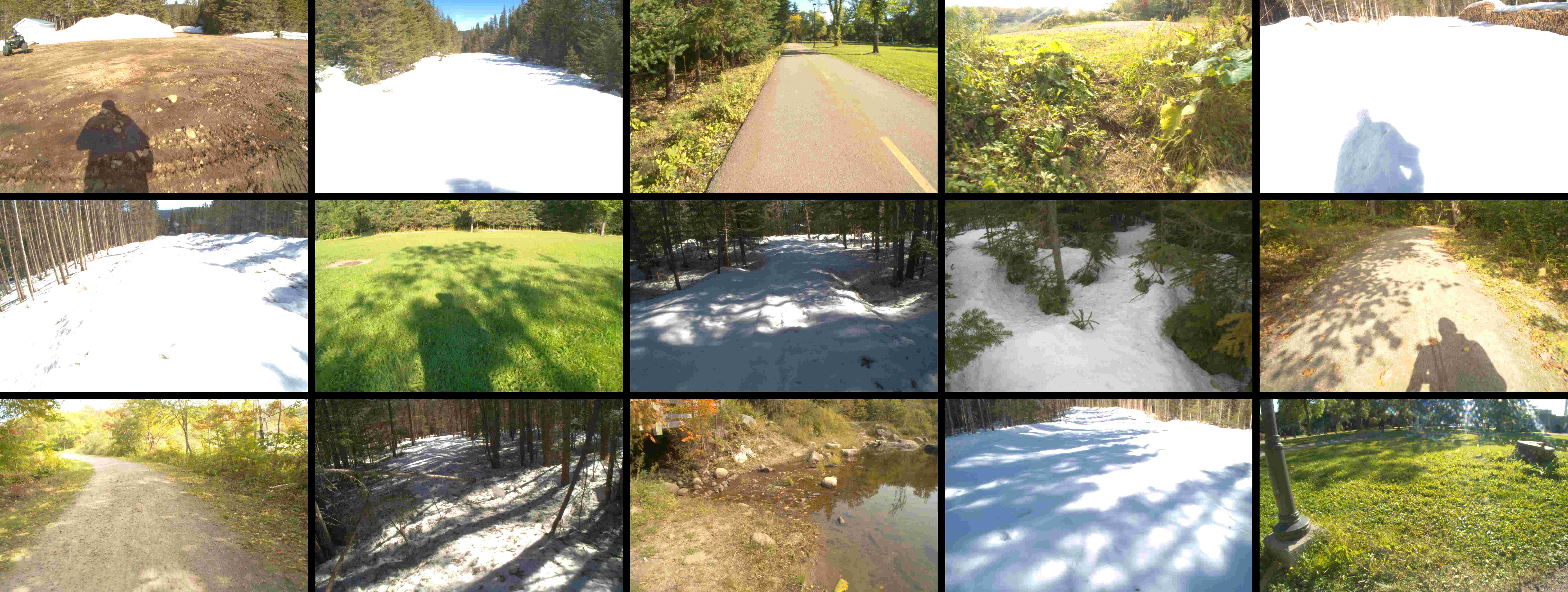Visual Odometry (VO) is one of the fundamental tasks in computer vision for robotics. However, its performance is deeply affected by High Dynamic Range (HDR) scenes, omnipresent outdoor. While new Automatic-Exposure (AE) approaches to mitigate this have appeared, their comparison in a reproducible manner is problematic. This stems from the fact that the behavior of AE depends on the environment, and it affects the image acquisition process. Consequently, AE has traditionally only been benchmarked in an online manner, making the experiments non-reproducible. To solve this, we propose a new methodology based on an emulator that can generate images at any exposure time. It leverages BorealHDR, a unique multi-exposure stereo dataset collected over 10 km, on 55 trajectories with challenging illumination conditions. Moreover, it includes lidar-inertial-based global maps with pose estimation for each image frame as well as Global Navigation Satellite System (GNSS) data, for comparison. We show that using these images acquired at different exposure times, we can emulate realistic images, keeping a Root-Mean-Square Error (RMSE) below 1.78 % compared to ground truth images. To demonstrate the practicality of our approach for offline benchmarking, we compared three state-of-the-art AE algorithms on key elements of Visual Simultaneous Localization And Mapping (VSLAM) pipeline, against four baselines. Consequently, reproducible evaluation of AE is now possible, speeding up the development of future approaches. Our code and dataset are available online at this link: https://github.com/norlab-ulaval/BorealHDR
Video
Reference
Gamache, O., Fortin, J.-M., Boxan, M., Vaidis, M., Pomerleau, F., & Giguère, P. (2024). Exposing the Unseen: Exposure Time Emulation for Offline Benchmarking of Vision Algorithms. IEEE/RSJ International Conference on Intelligent Robots and Systems (IROS), 11110–11117. https://doi.org/10.1109/IROS58592.2024.10803057
